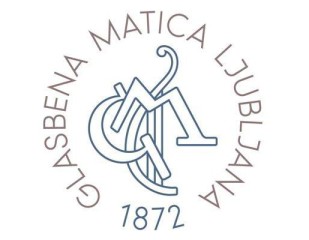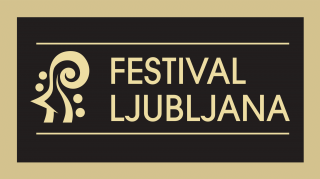The programme brochure of 35th Slovenian Music Days is available here.
Theresa Plut, soprano
David Jagodic, tenor
Andreja Kosmač, piano
Programme moderator: Anamarija Štukelj Cuzma
Programme:
L. van Beethoven:
An die ferne Geliebte, op. 98
- Auf dem Hügel sizt ich spähend, op. 98/1 (Alois Jeitteles)
- Wo die Berge so blau, op. 98/2 (Alois Jeitteles)
- Leichte Segler in den Höhen, op. 98/3 (Alois Jeitteles)
- Diese Wolken in den Höhen, op. 98/4 (Alois Jeitteles)
- Es kehret der Maien, es blühet die Au, op. 98/5 (Alois Jeitteles)
- Nimm sie hin denn, diese Lieder,op. 98/6 (Alois Jeitteles)
A. Hüttenbrenner:
Der Zaunkönig ( Ferdinand von Rast) *
Marburg (Ferdinand von Rast) *
Das Mädchen am Spinnrade (Ferdinand von Rast) *
Custozza (Ferdinand von Rast)*
Sylvesternachtstraum (Ferdinand von Rast)*
Mein Steierland (Ferdinand von Rast)*
L. van Beethoven:
An die Hoffnung, op. 94 (Christoph August Tiedge)
F. Schubert:
Ganymed, D. 544 (Johann Wolfgang von Goethe)
Gretchen am Spinnrade, D. 118 (Johann Wolfgang von Goethe)
H. Wolf:
Auch kleine Dinge, IHW 15/1 (Paul Heyse)
Verborgenheit, IHW 22/12 (Eduard Mörike)
Schweig einmal still (Paul Heyse)
Er ist’s (Eduard Mörike)
Der Gärtner (Eudard Mörike)
An die Geliebte (Eduard Mörike)
Lebe wohl (Eduard Mörike)
Nimmersatte Liebe, IHW 22/9 (Eduard Mörike)
Ich hab in Penna, IHW 15/46 (Paul Heyse)
*premiere performance
As a genre, lieder experienced a remarkable rise in the nineteenth century and reached its peak in German-speaking countries. New foundations were laid for this intimate musical genre for solo voice and piano by Franz Schubert (1797–1828), who lifted it from its marginal position as mere songs for voice and accompaniment and placed it among creations of high artistic value. Besides the incomparable wealth of melodic and harmonic ideas in his more than 600 lieder, Schubert’s contribution to the genre is apparent above all in the balance of form and content. In his profound relationship with the poetic text and his search for new expressive possibilities, he also raised the piano part to the level of weighty co-creator of musical poetics. The evening will include two of Schubert settings of texts by Goethe, written between 1814 (Gretchen am Spinnrade, a notable artistic breakthrough) and 1821. Schubert’s contemporary in Vienna – far more famous at the time – was Ludwig van Beethoven (1770 1827), the 250th anniversary of whose birth was marked in 2020. Beethoven is still celebrated above all for his magnificent instrumental oeuvre, yet while his lieder only account for a small part of his creative career, they should not be overlooked. The most important of them form the cycle of six songs An die ferne Geliebte (“To the Distant Beloved”; Op. 98), written in 1816, which will be performed in full at this concert together. Hugo Wolf (1860–1903) was born 160 years ago in Slovenj Gradec (2020 has been proclaimed Hugo Wolf Year by Slovenia’s Ministry of Culture) and along with Robert Schumann and Johannes Brahms is considered one of the most important lieder composers of the nineteenth century after Schubert. Like Beethoven, he was a “free” artist, but unlike Beethoven he struggled his entire life with financial difficulties. Like Schumann, he composed in fits of burning inspiration interspersed by periods of depression. An enthusiastic Wagnerian, Wolf understood the essential interdependence of text and music, where the music must act not as a mere illustration of the text but as its realisation in sound, also capable of expressing the ineffable. The programme includes a selection of Wolf’s settings of texts by Eichendorff and Mörike and songs from the Italienisches Liederbuch. Joining the works of these giants of lieder on the evening’s programme, interpreted by soprano Theresa Plut, tenor David Jagodic and pianist Andreja Kosmač, is a selection of lieder by Anselm Hüttenbrenner (1794–1868), who was friends with both Schubert and Beethoven. Hüttenbrenner’s fascinating and extensive legacy of more than 160 settings of verses by Ferdinand von Rast, created in Maribor between 1853 and 1858, was recently discovered by the musicologist Jernej Weiss. This concert will be the first public performance of the lieder by Hüttenbrenner included in the programme.
Helena Filipčič Gardina





